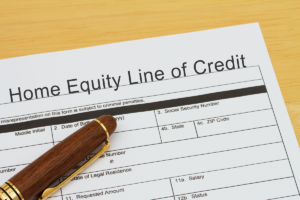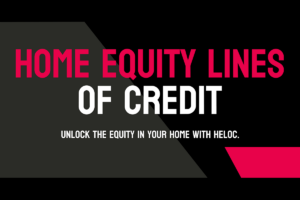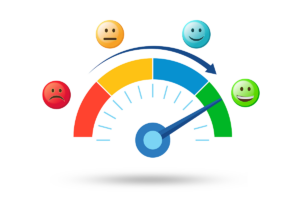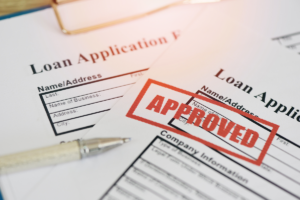Unlock the Power of Home Equity Loans—Essential Guide

How to Grow a Thin Credit File
09/30/2024
Mortgages 101—What Home Buyers Need to Know
10/18/2024 It can be a financial challenge to become a homeowner. But once you make your homeownership dreams a reality, there are plenty of benefits to enjoy.
It can be a financial challenge to become a homeowner. But once you make your homeownership dreams a reality, there are plenty of benefits to enjoy.
On the personal side, you can enjoy the ability to make the place your own without clearing decor choices with the landlord and know that you can settle in without the threat of finding a new place at the end of your lease.
Beyond the personal benefits of homeownership, there are also many financial benefits. One of those financial benefits is the ability to build home equity with each mortgage payment. As you build equity, it can become a tool to navigate financial challenges and cover big purchases.
We will explore the potential of home equity loans below.
Definition of a Home Equity Loan & Home Equity Line of Credit
The basics of any home equity-based loan is that you use your home equity as collateral for the loan. Equity represents the difference between the home’s current market value and the outstanding mortgage balance. For example, if you own a home worth $500,000 and currently owe $100,000 on your mortgage, then your total home equity is $400,000.
Since you are using your home equity as collateral, this essentially creates a second mortgage on your home. With that, falling behind on your home equity financing payments could lead to foreclosure on your home. It’s clear that tapping into your home equity comes with a risk. But for some homeowners, the risk is worth the reward.
Let’s take a closer look at the two common types of home equity financing options: a home equity loan and a home equity line of credit.
Home Equity Loan
With a home equity loan, the process follows the guidelines of an installment loan. With that, homeowners with sufficient equity can borrow a lump sum amount, often at a fixed interest rate, using their home as collateral.
One key feature of a home equity loan is its predictability. Like with other installment loans, borrowers receive a one-time payout and repay the loan over a set period with fixed monthly payments. This stability can be useful for budgeting purposes, providing a clear roadmap for repayment.
However, it’s essential for homeowners to carefully consider the terms and potential risks associated with using their home equity, as failure to repay could result in the loss of their property. In general, it’s useful to think of this type of loan as a second mortgage, which comes with the risk of foreclosure if you don’t follow the terms of repayment.
Home Equity Line of Credit (HELOC)
Unlike a home equity loan, a home equity line of credit (HELOC) operates as a revolving line of credit, similar to a credit card. Homeowners are granted a credit limit and can borrow against it as needed, making it a flexible option for various financial needs.
One notable characteristic of a HELOC is its unpredictable nature. As the outstanding balance is repaid, the available credit is replenished, allowing homeowners to reuse the funds over the life of the line of credit. This makes HELOCs particularly suitable for ongoing projects or expenses with fluctuating costs, such as home renovations, education expenses, or emergency funds.
Interest rates on HELOCs are often variable, meaning they can change over time based on market conditions. Borrowers may have the option to make interest-only payments during the draw period, typically the initial years of the loan. Afterward, a repayment period begins, during which both principal and interest must be paid.
Understanding the terms, including interest rates, draw periods, and repayment schedules, is essential for homeowners considering a HELOC. If you are considering a HELOC, make sure to read the fine print before signing on the dotted line.
What Can You Do With a Home Equity Loan?
When you take out a home equity loan, you can usually use the funds for a wide range of financial reasons. Below is a closer look at some of the popular uses of a home equity loan:
- Fund home renovations: Use the funds from a home equity loan to finance remodeling projects, upgrades, or structural improvements, enhancing the overall value of your property.
- Consolidate your debt: Consolidate high-interest debts, such as credit card balances or personal loans, into a single, more manageable loan with potentially lower interest rates. With just one monthly payment to keep track of, your finances might be easier to manage.

- Cover education expenses: Finance education costs, including tuition fees, textbooks, or other educational expenses for yourself or your dependents.
- Take care of emergency expenses: Life can throw unexpected bills your way. As a homeowner, you can tap into your home’s equity to cover a range of unavoidable expenses like unexpected medical bills, car repairs, or other urgent financial needs.
- Fund big purchases: Make significant purchases, such as a new car, without resorting to higher-interest financing options like auto loans.
- Take a vacation: Fund a dream vacation or travel experience, allowing you to explore the world or create lasting memories with your loved ones.
- Pay for major life events: Cover the costs of special events like weddings, milestone celebrations, or family gatherings, ensuring you can enjoy these moments with less financial stress.
- Cover medical bills: Address medical expenses not covered by insurance, ensuring access to necessary healthcare without straining your immediate budget.
- Pay for energy efficiency upgrades: Invest in energy-efficient improvements for your home, such as solar panels or energy-efficient appliances, which can lead to long-term savings on utility bills.
- Build your real estate portfolio: Use the funds to invest in additional real estate, expanding your property portfolio and potentially generating additional income through rental properties.
As you can see, there is no shortage of ways to use a home equity loan. But you’ll have to decide if using your home as collateral for this loan is worth gaining access to funding.
How to Use a Home Equity Loan Calculator
Before you dive into a home equity loan application, start by playing around with a home equity calculator.
In order to get the most accurate assessment of your home equity loan options, come prepared with information about your home’s value, your outstanding mortgage balance, and your credit scores. If you aren’t sure what your mortgage balance is, check your most recent mortgage statements. Use a site like Redfin or Zillow to estimate the current market value of your home.
Many financial institutions and websites offer home equity calculators, including Bankrate. It can help you determine how much you might be able to borrow and what monthly payments you should expect. For example, if you take out a $150,000 home equity loan with a 5-year term and a 6.99% interest rate, you might expect a monthly payment of approximately $3,000.
It’s important to note that a lender is unlikely to let you borrow the entire amount of home equity you’ve built. But with a home equity loan calculator, you can get an estimate of how much you might be able to borrow. Take some time to explore your own numbers with a home equity calculator.
Who Are Home Equity Loans Good or Bad For?
Home equity loans are a useful financial tool. But as with all financial products, there are some advantages and disadvantages to consider. With that, home equity loans may be good for some homeowners and not for others.
Below is a closer look at who home equity loans might be good for:
- Homeowners with significant equity: Home equity loans are ideal for those who have built substantial equity in their homes over time. The more equity you have, the more you can potentially borrow.
- Borrowers seeking predictability: Home equity loans often come with fixed interest rates and monthly payments, providing a level of predictability that can be attractive to borrowers who prefer a stable, long-term financial arrangement.
- Homeowners who understand the risks: Home equity loans are secured by the property, meaning there is a risk of losing the home if repayments are not met. It’s essential for borrowers to fully comprehend the risks involved and be confident in their ability to meet their repayment obligations.
Now let’s explore who home equity loans might not be good for:
- Borrowers in unstable financial situations: Home equity loans are not recommended for individuals facing financial instability or uncertainty. If there’s a risk of income reduction or job loss, committing to fixed monthly payments may become challenging, putting the borrower at risk of financial strain and possibly home foreclosure.
- Borrowers with poor credit history: Individuals with low credit scores might find it difficult to secure favorable terms on a home equity loan. The interest rates offered to those with poor credit can be considerably higher, making the loan less cost-effective and potentially exacerbating financial challenges.
- Homeowners seeking smaller loan amounts: Home equity loans are generally more suitable for substantial, long-term expenses. If you are looking for a small, short-term loan, alternative options such as personal loans or credit cards may be more appropriate, as they typically involve less complexity and cost.
Who Are Home Equity Lines of Credit Good or Bad For?
HELOCs borrowers a different option than home equity loans. While both tap into the homeowner’s equity, the structure of the financing arrangement is very different. Like home equity loans, HELOCs are suited for some borrowers and not for others.
Below is a closer look at who a HELOC might be good for:

- Homeowners planning a renovation: Homeowners planning extensive renovations or improvements can benefit from a HELOC to access funds as needed throughout the project.
- Homeowners with ongoing financial commitments: If you are juggling multiple expensive endeavors, a HELOC might be the right fit for your situation due to the flexibility to draw funds as you need them.
Now let’s explore who a HELOC might not be good for:
- Financially unstable individuals: HELOCs may not be suitable for those facing financial instability or unpredictable income. The variable interest rates and potential for increasing monthly payments could pose challenges for individuals with uncertain financial circumstances.
- Borrowers prone to overspending: Individuals with a tendency to overspend or mismanage finances may find a HELOC risky. The open-ended nature of a line of credit can tempt borrowers to continuously tap into their home equity, leading to increased debt and financial strain.
- Homeowners who don’t want to use their home as collateral: HELOCs are secured by the value of the home. Individuals uncomfortable with leveraging their home as collateral may prefer alternative financing options that don’t involve putting their property at risk.
Popular Home Equity Loan Alternatives
A home equity loan isn’t the only solution for homeowners looking to fund an expense. Below are some other popular financing options:
- Personal loans: Unsecured personal loans can be an alternative for those who don’t want to use their home as collateral. They are based on creditworthiness and may have higher interest rates than home equity loans.
- Credit cards: For smaller expenses or short-term financing needs, credit cards can be convenient. However, they often come with higher interest rates, making them less suitable for large expenses or long-term financial needs.
- Cash-out refinancing: Homeowners can consider refinancing their mortgage to access home equity. This involves replacing the existing mortgage with a new one, possibly at a lower interest rate, and taking out additional cash.
- Family loans: Borrowing from family members or friends is an option for some, but it’s crucial to approach such arrangements with clear terms and open communication to avoid strained relationships.
- Savings: Whenever possible, using personal savings or an emergency fund can be a prudent alternative to taking out a loan, avoiding interest payments altogether.
Credit Scores Needed for a Home Equity Loan
Every lender sets its own minimum credit score requirements, but many lenders set a minimum credit score of 620 for homeowners seeking a home equity loan.
In general, borrowers with better credit scores can tap into better loan terms. Depending on the situation, a borrower with a great credit score could unlock a lower interest rate that saves them thousands of dollars over the course of the loan term.
Home Equity Loan Best Practices
If you decide to take out a home equity loan, it’s important to manage the process efficiently. Below are some best practices to keep in mind:
- Beef up your credit scores before you apply: The right credit scores can save you thousands of dollars in interest charges. Take some time to improve your credit scores before applying for a home equity loan by committing to on-time payments and eliminating any errors from your credit reports.
- Only apply for what you need: If opting for a home equity loan, don’t borrow more funds than you need. If you aren’t sure what you’ll need or want some flexibility, consider a HELOC.
- Make on-time payments: Once you obtain the loan, consistently make on-time payments to repay it. If you don’t uphold the terms of the loan, you could face significant consequences, including possibly losing your home.
Bottom Line of Home Equity Loans
A home equity loan is one option for homeowners who have built significant equity in their home. With this type of loan, homeowners can get their hands on much-needed funds. The catch is that your home equity serves as collateral for the loan, which means you could lose your home if you don’t keep up with the payments—so choose wisely when deciding if a home equity loan is right for you.
What do you think about home equity loans? Let us know or ask us a question in the comments below.





